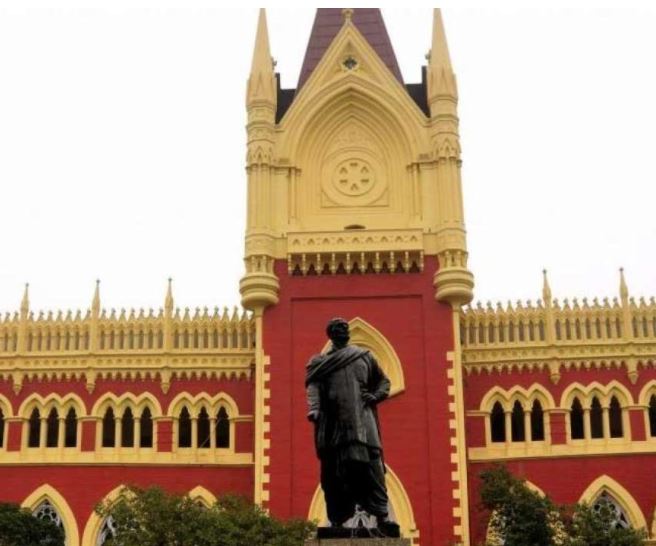The Calcutta High Court dismissed a Public Interest Litigation (PIL) filed against the 16th respondent, which is an educational and research trust, which has set up a medical college in the land in question.
According to the petitioners, the provisions of the West Bengal Land & Land Reforms Act, 1955 and West Bengal Panchayat Act, 1973 have been violated.There are also other allegations, which have been made in the writ petition stating that the 16th respondent/medical college is not entitled to be granted recognition nor admit any student.
A preliminary objection was raised by the senior advocate appearing for the 16th respondent/institution and leave was granted to file an affidavit raising such preliminary objection.
Such an affidavit dated 17th July, 2023 has been filed, to which the petitioners have filed a reply dated 24th July, 2023.
The Division Bench of Chief Justice T. S. Sivagnanam and Justice Hiranmay Bhattacharyya noted that the first aspect, which the Court needs to bear in mind is as to what are the aspects, which the Court has to take note of before entertaining a public interest litigation in order to preserve the purity and sanctity of the public interest litigation jurisdiction.
The Supreme Court in the case of State of Uttaranchal Vs. Balwant Singh Chaufal & Ors. reported in (2010) 3 SCC 402 has laid down the parameters after referring to the decision of Holicow Pictures (P) Ltd. Vs. Prem Chandra Mishra reported in (2007) 14 SCC 281, wherein the Hon’ble Supreme Court held that public interest litigation is a weapon, which has to be used with great care and circumspection and the judiciary has to be extremely careful to see behind the beautiful veil of public interest an ugly private malice, vested interest and/or publicity-seeking is not lurking. Further, it was held that it is to be used as an effective weapon in the armoury of law for delivering social justice to the citizens. The attractive brand name of public interest litigation should not be used for suspicious products of mischief. It should be aimed at redressal of genuine public wrong or public injury and not publicity oriented or founded on personal vendetta.
Further the Supreme Court pointed out that Court has to be satisfied about
(a) the credentials of the applicant;
(b) the prima facie correctness or nature of information given by him;
(c) the information being not vague and indefinite.
Further, it was pointed out that the Court has to strike a balance between the two conflicting interests;
(i) nobody should be allowed to indulge in wild and reckless allegations besmirching the character of others; and
(ii) to avoidance of public mischief and to avoid mischievous petitions seeking to assail, for oblique motives, justifiable executive actions. In such case further, the Court cannot afford to be liberal. It has to be extremely careful to see that under the guise of redressing a public grievance, it does not encroach upon the sphere reserved by the Constitution to the executive and the legislature. The Court has to act ruthlessly while dealing with imposters and busybodies or meddlesome interlopers impersonating as public spirited holy men.
Further, in paragraph 181 of the judgment; issued certain directions and one such direction being that the Court should prima facie verify the credentials of the petitioner before entertaining a public interest litigation. This decision in the case of Balwant Singh Chaufal & Ors. (supra) was followed by the Supreme Court in K. Kumara Gupta vs. Sri Markendaya and Sri Omkareshwara Swamy Temple & Ors. reported in (2022) 5 SCC 710, wherein it was reiterated that the Court should prima facie verify the credentials of the petitioner before entertaining a public interest litigation.
From the affidavit filed by the 16th respondent the Court noted that the 1st writ petitioner had deeply associated himself in the process of establishing a medical college by the 16th respondent/trust. This is evident from the e-mail dated 23rd August, 2021 and other documents, which have been appended to the affidavit filed by the 16th respondent.
In the reply affidavit filed by the petitioners, the allegations are sought to be denied. Nevertheless, the documents, which have been appended to the affidavit filed by the 16th respondent show that all the petitioners had direct and substantial interest in the process of the medical college being established by the 16th respondent.
The advocate appearing for the petitioners referred to Rule 56 of the Rules of the High Court at Calcutta relating to application under Article 226 of the Constitution of India.
Rule 56 defines what a public interest litigation is. Specific reference was made to a portion of the rule, which commences with the non obstante clause stating that notwithstanding anything contained in Rule 56, in any appropriate case, though the petitioner might have moved a Court in his private interest and for redressal of personal grievances, the Court in furtherance of the public interest involved therein may treat the subject of litigation in the interest of justice as a public interest litigation. The rule gives a power to the Court to do so in any appropriate case. Therefore, the moot question would be as to whether this Court considers the case on hand as one such appropriate case to examine the grievances, which have been mentioned in the petition.
Considering the deep involvement of the three writ petitioners in the process of establishing the medical college, the Bench found that the petition to be not a genuine public interest writ petition but, it is with a private motive. Therefore, the Court is of the clear view that the petition is not maintainable at the instance of the petitioners.
While dismissing the PIL , the Court clarified that the dismissal of the petition does not mean that it has granted a seal of approval to all the actions done by the 16th respondent. It is up to the 16th respondent to satisfy the concerned authorities, in the event, if any query is raised against them.


